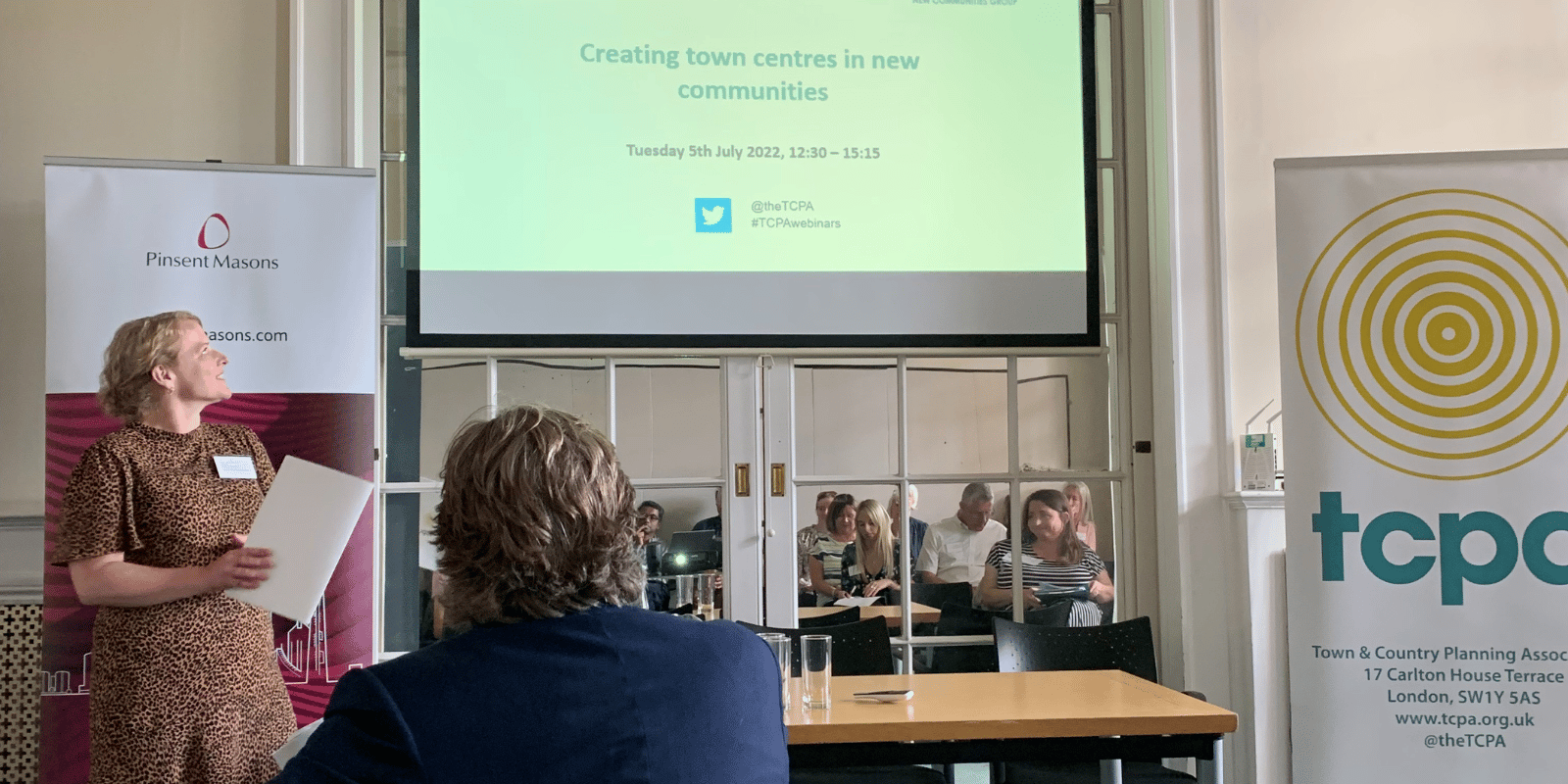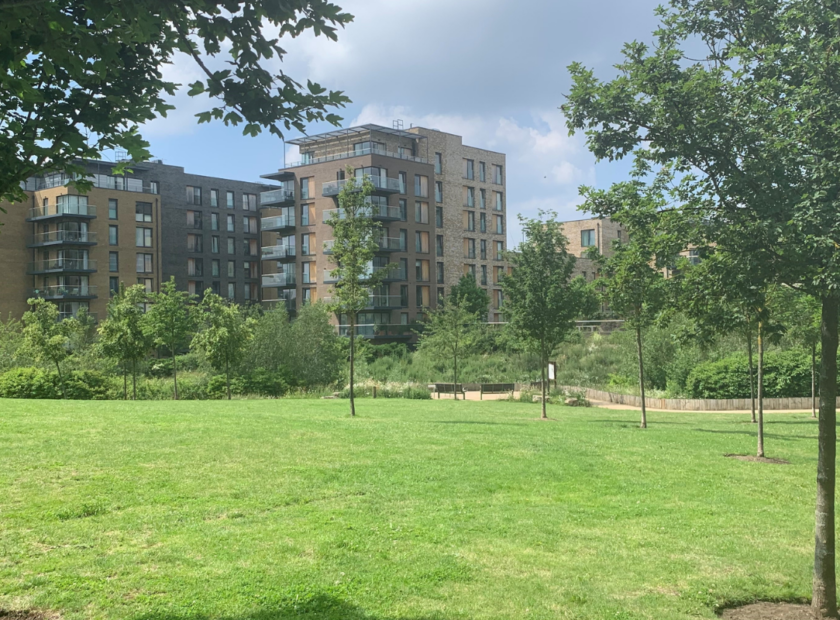In July, the TCPA hosted its first in-person seminar for our New Communities Group since the pandemic on ‘Creating town centres in new communities’.
Thriving town centres should be places where people can work, shop, eat, drink and play. Too often in new developments, housing comes first, and town centres are left until later or deemed too difficult to deliver. However, their creation and evolution should be viewed a priority which creates a vibrant heart for the new place.
Successful delivery of town centres in new communities requires early alignment of infrastructure investment, programming, and public engagement. It means maximising opportunities for ‘meanwhile uses’ – temporary, flexible and interchangeable uses of empty property and land – throughout the development process, which may take up to 30 years. Design of community buildings should be sufficiently flexible to allow for adaptation to meet different needs and to provide a range of opportunities for income generation as part of a wider stewardship strategy.
Getting this alignment right remains a challenge for those delivering new communities. Therefore, the event aimed to examine what can we learn from those delivering new communities right now, and what transferable lessons are there from the regeneration of our existing town centres.
Richard Ford, Partner at Pinsent Masons presented ‘What are data trusts and why do they matter for successful town centre design and management?’, in which he gave an in-depth overview of the role data trusts can play when planning new developments and stewardship initiatives. These are special purpose limited companies established to allow data from various sources to be shared with and used by stakeholders for public benefit. He explained how data trusts can bring together the public, private and voluntary sector who share common objectives, whilst also helping to promote transport strategies and mapping leisure facilities, office space etc. We also heard from James Scott, Group Director of Strategy and Planning at Urban & Civic, who examined the future of new local and district centres, presenting on how town centres can be planned and revolutionised to provide more than just retail space, such as co-working areas and multi-use cafes. He also explained the success of using apps to establish people’s views and preferences on what they would like to see in the future of the town centre, such as bakeries versus delicatessens, and cafes or bistros. It was emphasised however, that this can only be achieved when taking a phased delivery approach and being flexible to what the town centre provides, honouring the community’s desire to be heard and actioned.
We then heard from two case studies. The first was from Whitehill & Bordon presented by Clare Chester, Director of Regeneration & Prosperity at East Hampshire District Council, who focused on how they created a new town centre that was well-connected and green, and prioritised the health of its community, such as providing recreational areas, a new sports pavilion and community building within 55 hectares of strategic woodland and heathland. Whitehill & Bordon town centre also hosts a new Future Skills Centre and Business Enterprise Centre, which both opened in 2017.
The second case study was from Homes England on new neighbourhood centres in the Midlands, given by Sarah Taylor, Head of Planning and Enabling and Guy Scott, Project Director. They demonstrated how undertaking site analyses, using evidence bases and having a clear vision were key to decision making when planning town centres, describing how a Space Syntax tool was used to identify the most connected parts of a sites. They also emphasised the importance of a people-led approach, through public engagement strategies and taking a flexible approach to the design and phasing the delivery, to ensure a balance between achieving quality of place and efficiency.
In between these informative and dynamic sessions, it was great to see New Communities Group members, guests and speakers networking and reconnecting over refreshments, providing the opportunity to share ideas and knowledge in-person at the TCPA offices. We look forward to hosting further in person seminars and hope you can join us!




